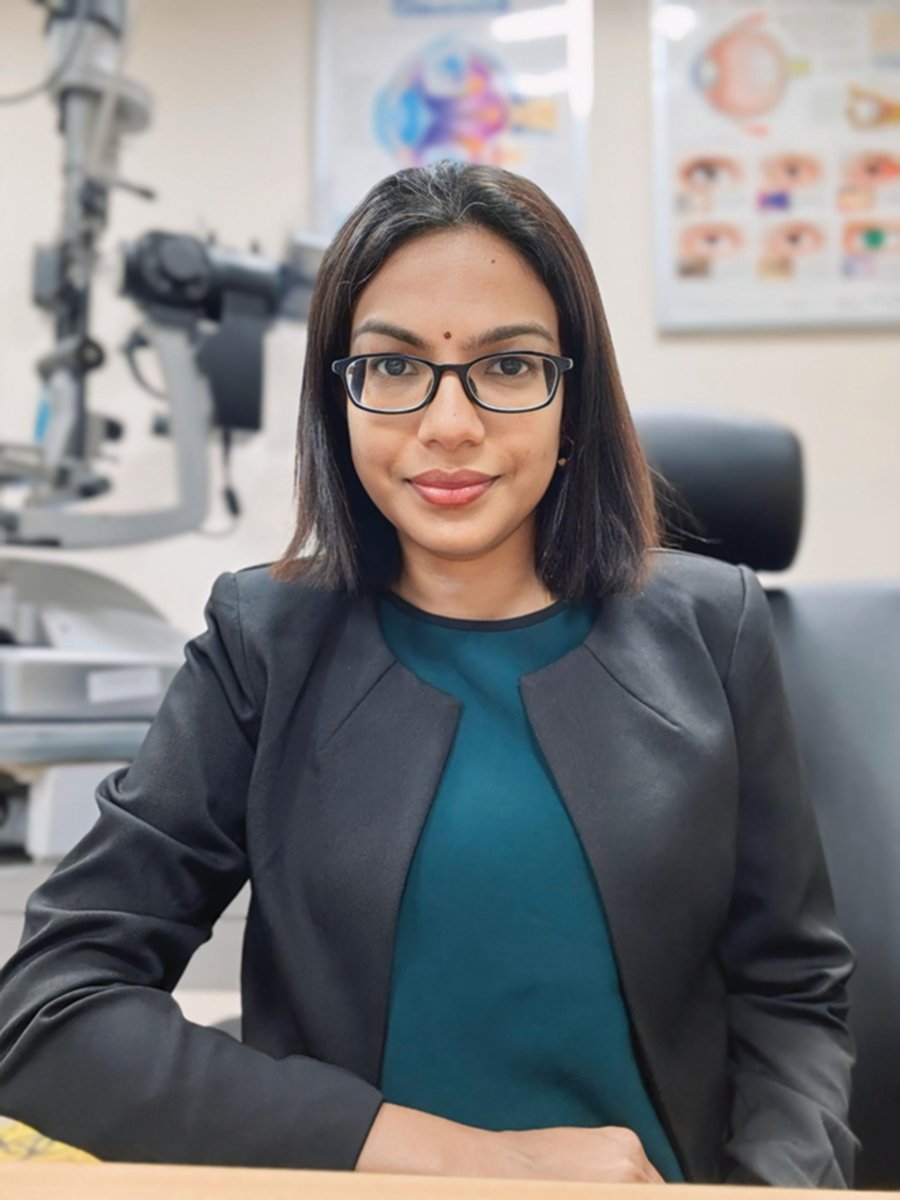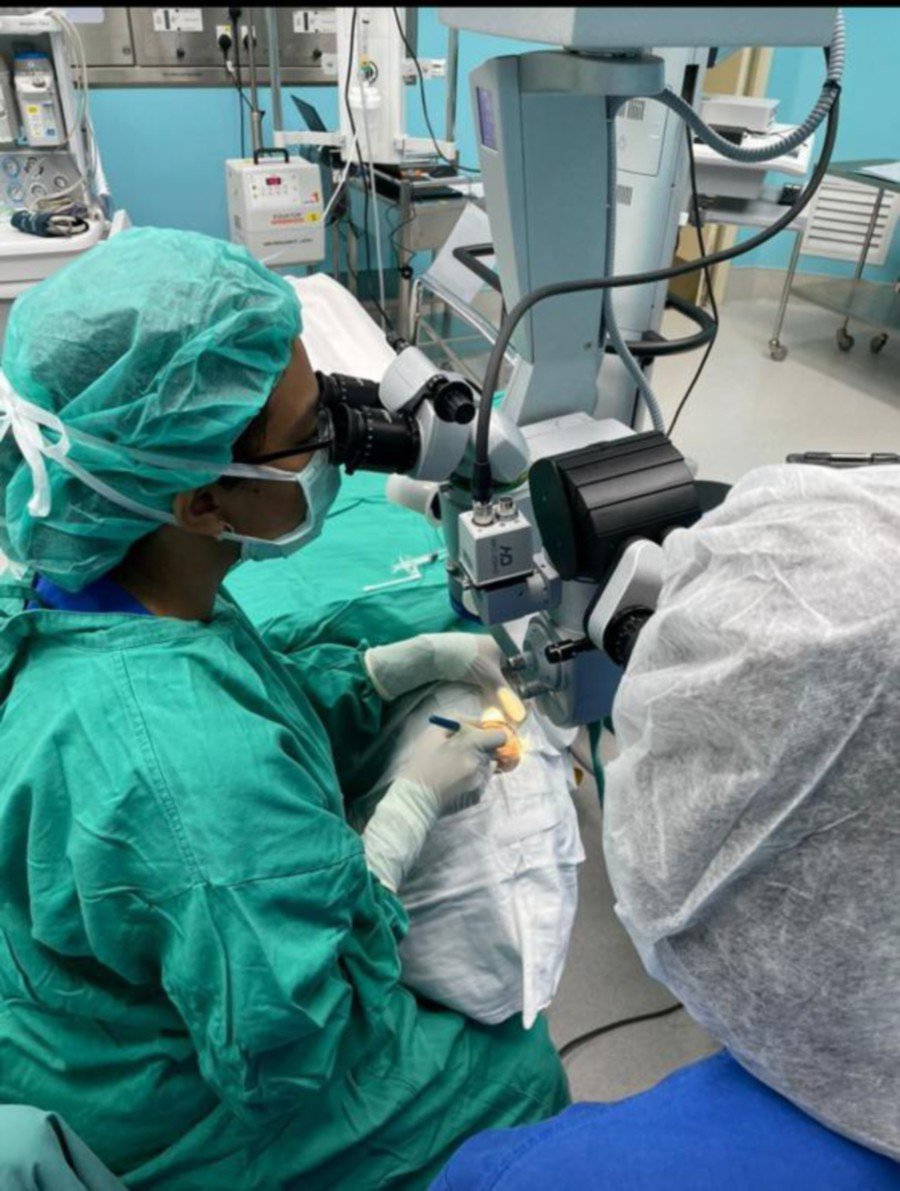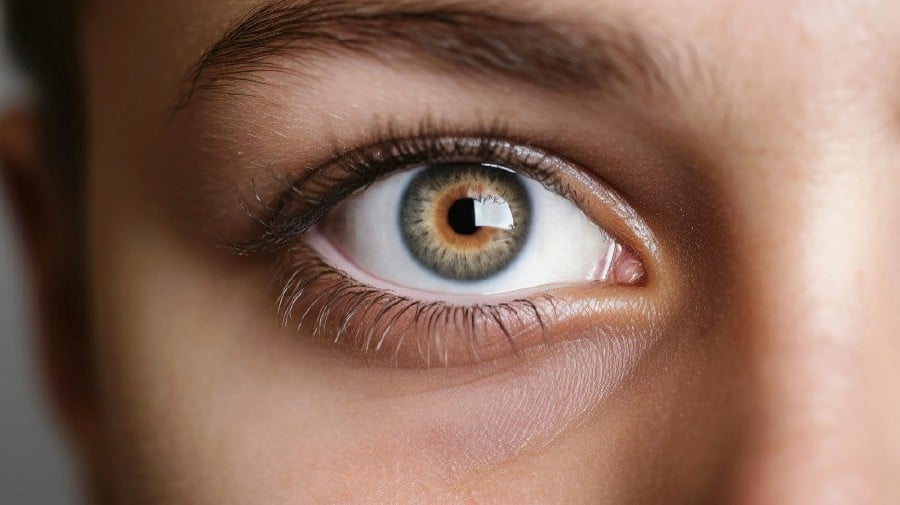GLAUCOMA is fast emerging as one of the main causes of irreversible blindness.
This disorder is caused by high intra-ocular pressure that damages the optic nerve, which connects the eye to the brain.
Pantai Hospital Kuala Lumpur consultant ophthalmologist and glaucoma specialist Dr Puspha Raman says about 80 million people are affected by glaucoma-related blindness.
In Malaysia, after cataract and diabetes, glaucoma is the third main cause of blindness. World Glaucoma Week (March 10 to 16) is marked every year to raise awareness of this condition.
Anyone above 50 is at risk. Those who have a family history of the disease also need to be wary.
"If you have family history, you have a strong chance of getting this disease. Long-term use of steroids can also cause this condition, so those on this medication need to have their eyes screened regularly," says Dr Puspha.
Individuals suffering from obstructive sleep apnoea also need to be screened.
Dr Puspha says due to heavy snoring when they sleep, they donʼt get enough oxygen to the eye, and this results in a very high risk of damage to eye tissue.
"There are steps we can take to prevent glaucoma but once you have the disease and blindness sets in, there's nothing we can do," she says.

Glaucoma is often called "the silent thief of sight", she adds, because there may be no symptoms in the initial stages.
For this reason, Dr Puspha says if one has a risk factor, one should get screened. Screening can be done at hospitals, eye centres and also at optometrist shops provided they have the equipment.
When glaucoma starts to develop, it usually affects a personʼs side vision, so they may not notice it because their central vision remains good.
EMERGENCY
When patients start experiencing blurry vision, their glaucoma is already at an advanced stage. Patients may also present with pain, headache, nausea and vomiting due to high intra-ocular pressure.
Dr Puspha says patients with these symptoms have to go to the hospital immediately.
"If we don't reverse the pressure, there is high risk of visual impairment and once again, we can't reverse the blindness once it sets in."
Dr Puspha describes the eye as a "balloon" filled with water. In the eye, there is a mechanism that controls the inflow and outflow of this water. When a person develops glaucoma, this "drainage" system doesn't work properly and it causes pressure to build up.
To prevent the onset of the disease, it is crucial for those at risk and everyone above 50 to regularly check their eye pressure and the health of their optic nerve. This screening should be done at least once a year.
DISEASE MANAGEMENT
EYE drops are usually prescribed to patients. These drops reduce the amount of fluid that accumulates in the eye or improve its outflow to relieve the pressure. But some patients may develop an allergy to these drops. This treatment also requires strict compliance to work effectively.
The eye drops have to be administered daily without fail and the effects last for 12 to 24 hours with each administration. If the patient stops using them, the pressure in the eye will build up again.
"Glaucoma is a chronic condition like diabetes and hypertension. You have to be on medication for life. Sometimes patients forget to use the drops or they donʼt administer it correctly," says Dr Pushpa.
Laser surgery can also be an option to target the drainage site in the eye and help improve flow.
A third option, which is still relatively new in the country, is known as minimally invasive glaucoma surgery or MIGS, says Dr Pushpa.
An implant is placed in the eye to improve the outflow of fluid.
"Itʼs a very fast process. Surgery only takes about 10 to 15 minutes and it doesn't affect the patient's lifestyle because recovery is fast and it gives you freedom from the use of eye drops."
But the results are not permanent. It will last seven to 10 years, which buys some time before they eventually need major surgery for glaucoma, says Dr Puspha.
"With major surgery, we craft a new alternative pathway for fluid to flow or drain. It's like creating an entire new plumbing system because the original pathway is not working," she says.
But major surgery does come with the risk of higher complications, and recovery can take two to three months.
If a patient is at an advanced stage, then major surgery is his only option.

There is no cure for glaucoma, says Dr Puspha.
"With these interventions, we can only preserve whatever vision is left and prevent progression of the disease. We cannot restore vision to its original state."
EYE HEALTH AFTER 50
*Manage stress as it may affect the nerves in the eye, causing them to degenerate faster.
*Deep breathing techniques enable relaxation and reduce eye pressure as well.
*Adequate sleep can improve eye health.
*A diet rich in vitamins A, B, C and E is important, as well as bilberry, saffron and foods rich in zeaxanthin.
*Exercise is good, but if you're already a glaucoma patient, avoid head down positions and weightlifting.
*Consume caffeine in moderation.
*Get your eyes screened once a year or more often if you have risk factors.






